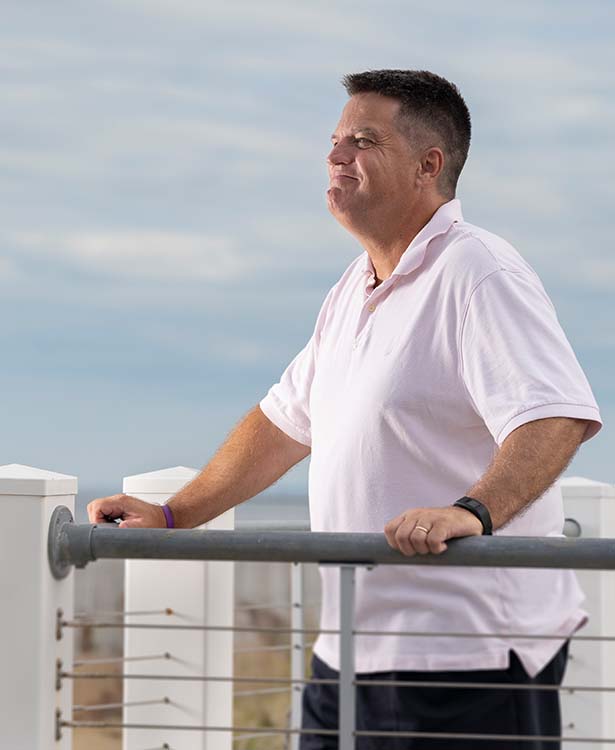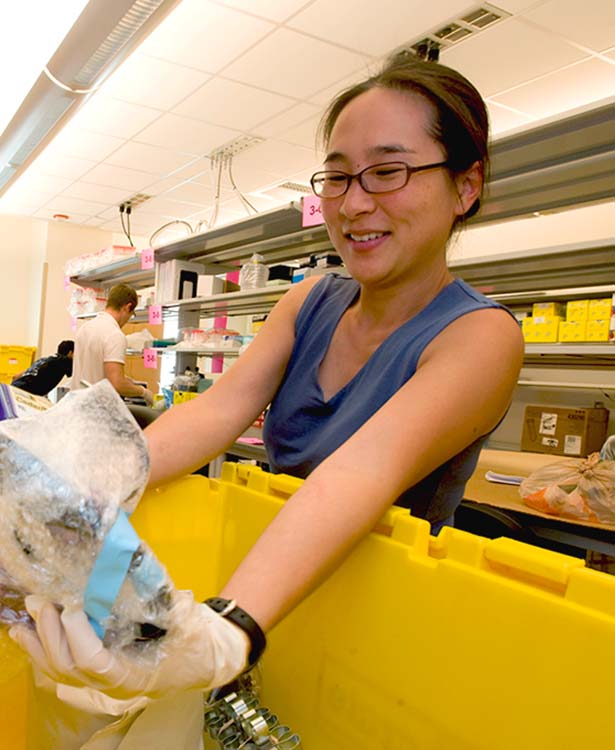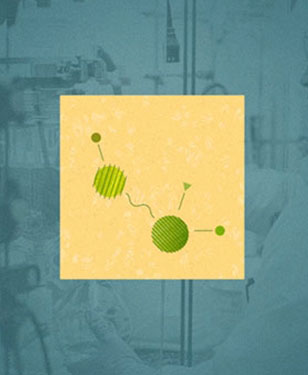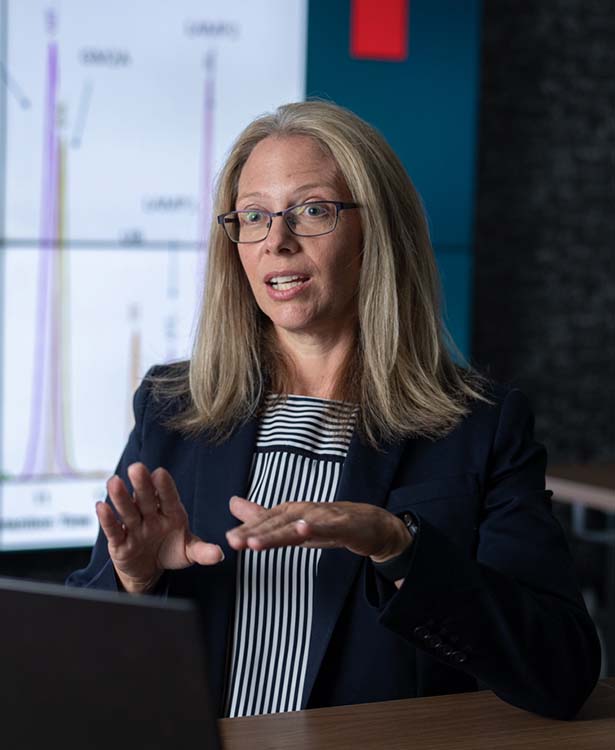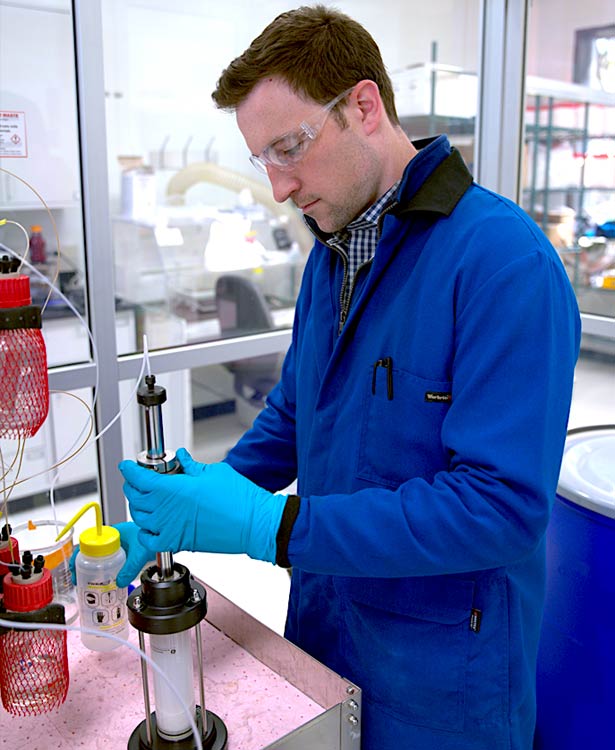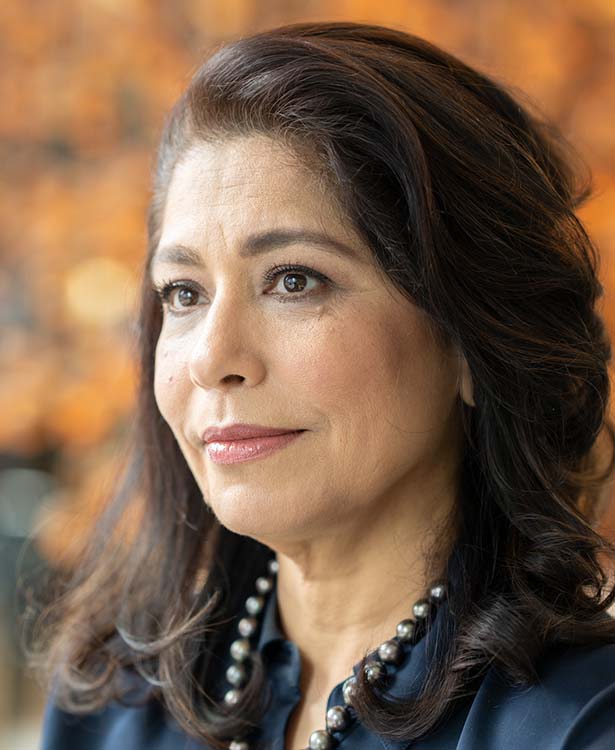Dr. Alexis Hodges is a nurse practitioner at the Community Care Clinic of Dare County, North Carolina, an area increasingly impacted by rising temperatures and poor air quality. When one of her patients ended up in the hospital from extreme dehydration after working his outdoor job during a dangerously hot summer day, Dr. Hodges realized that the clinic and its patients were ill-prepared to address the health effects of climate change.
Dr. Alexis Hodges provides patients with checklists, tip sheets and other resources from the Climate Resilience for Frontline Clinics toolkit. Photo courtesy of Americares.
"Living on the Outer Banks, we experience coastal flooding, hurricanes and heat. The majority of patients here are not only vulnerable because they’re low-income and underserved, many of them are vulnerable to extreme weather events,” Dr. Hodges said.
Clinics like the Community Care Clinic urgently need effective tools to address current climate-related risks to their operations and patient health. To promote more equitable health outcomes, Biogen provided founding support for a groundbreaking collaboration between Americares and the Center for Climate, Health and the Global Environment at Harvard Chan C-CHANGE.
After surveying clinics to identify gaps and needs, Americares and Harvard Chan C-CHANGE released a new Climate Resilience for Frontline Clinics toolkit with support from Biogen. This new resource was released in full in December 2022 and includes clinical guidance and information on how to create action plans; tip sheets for patients; and checklists for clinic staff in situations of extreme heat, wildfires, hurricanes and floods. The toolkit is also located on the U.S. National Integrated Heat Health Information System’s website: Heat.gov.
“What we hear time and again is that frontline clinics are the glue that hold their communities together through day-to-day climate stressors and when disasters strike. But with limited resources and an ongoing pandemic, many don’t have the funding, training or tools they need after a climate shock,” said Dr. Aaron Bernstein, former Interim Director of Harvard Chan C-CHANGE. “We’re meeting clinics where they’re at with the resources they need so we can help prevent disease in the first place and make people more resilient to climate change.”
“We’re meeting clinics where they’re at with the resources they need so we can help prevent disease in the first place and make people more resilient to climate change.”
- Dr. Aaron Bernstein, former Interim Director of Harvard Chan C-CHANGE
With the addition of the Harvard Global Health Institute, the group plans to adapt the toolkit for use in low- and middle-income countries during the next five years. The global expansion was announced as a Commitment to Action at the Clinton Global Initiative 2022 Meeting.
For her part, Dr. Hodges is appreciative of the valuable resource. “We have been able to give patients the toolkit and are disseminating it in our clinic and with our administrators,” she said. “It is wonderful to know that we are all better prepared for the health effects of climate change thanks to this important work.”
